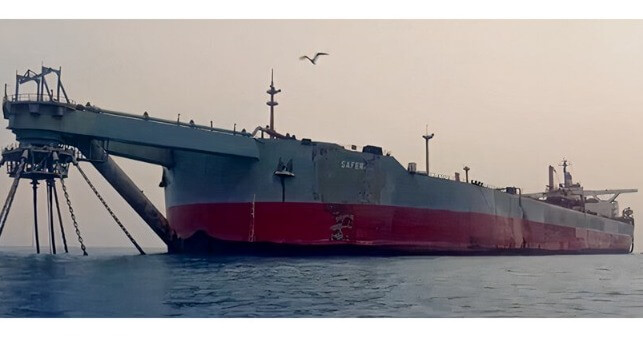UN Buys Euronav Tanker to Replace Failing FSO Safer in Yemen

United Nations officials are reporting a breakthrough in their long-running effort to avert an environmental disaster in the Red Sea by replacing the aging FSO Safer with a new storage tanker. After reporting two months ago that they were having trouble securing a tanker as the replacement, the United Nations Development Programme today signed an agreement for a replacement that could be on-site in Yemen in less than two months.
David Gressly, the UN Resident and Humanitarian Coordinator for Yemen, who has led the UN system-wide efforts on the Safer since September 2021, posted a message on his Twitter feed congratulating his colleagues, confirming that the agreement had been reached. Greessly later told reporters, “UNDP’s purchase of the vessel is indeed a major step, made possible by the generosity of donors, the private sector, and global citizens.”
UNDP signed the purchase agreement with Euronav for an unnamed VLCC. The tanker has already entered drydock for regular maintenance and will also undergo modifications for its assignment to receive the more than one million barrels of oil currently stored on the Safer.
“The purchase of this suitable vessel by UNDP marks the beginning of the operational phase of the UN-coordinated plan to safely remove the oil from the Safer and avoid the risk of an environmental and humanitarian disaster on a massive scale,” said UNDP Administrator Achim Steiner. “We must accept that this is a very challenging and complex operation.”
The UN is coordinating with marine salvage company SMIT on the plan while also working to hold together a fragile agreement among the warring parties to permit the international effort. The Safer, built in 1976 as the Esso Japan, was converted to an FSO in 1987 and remains anchored approximately five and a half miles offshore in an area held by the rebel forces. Operations were suspended in 2015 during the ongoing civil war with only a skeleton crew aboard to provide essential maintenance. Experts have reported that the structural integrity of the vessel is decaying making repairs impossible. The lack of maintenance also means that normal operations such as the proper venting of tanks have not happened.
SMIT has been working at the vessel for the past few months with the UN preparing for the ship-to-ship transfer of the oil, which will remain in Yemen. The Safer is ultimately scheduled to be recycled under the UN plan.
The officials said they are anxious to get the new tanker alongside and expect it will arrive in Yemen by late April or early May. Speaking to reporters, Steiner predicted the transfer could begin by mid-May.
The effort was slowed by the difficulties the UN experienced in securing a replacement vessel as well as a prolonged fund-raising effort. In January, they reported having difficulties securing a tanker and the prices for vessels had risen dramatically due to the war in Ukraine and changes in the global oil markets.
UN officials report that they have commitments from the global community as well as through an online crowdfunding effort for a total of $95 million of which $75 million has been received. Last year, they also began to solicit donations from corporate donors. The budget for the emergency phase of the project is now set at $129 million, meaning the UN is currently attempting to raise an additional $34 million.
They have long warned of the potential for a catastrophic disaster that could result in a $20 billion clean-up and long-lasting environmental and economic damage if the Safer fails. They have outlined a scenario where the oil leak would close the ports of Hodeidah and Saleef, critical to the supply efforts in Yemen, as well as interrupt shipping through the Bab-al-Mandab strait leading to the Suez Canal and potentially reaching the eastern coast of Africa. They have estimated that the environmental impact on fishing and marine life could last 25 years.
